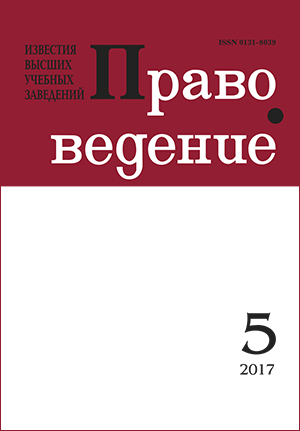Intellectual property in the innovative activity of a Russian university: issues of management and perspectives of legislative developments
Abstract
The article provides an overview of the main legislative provisions aimed at regulating the state intellectual property (IP) in the context of specific problems relevant for education. A general summary of experience related to the processes of IP management in large businesses is proposed as a model which can be applied in education and which presupposes three main blocks of relationships (processes): identification and legal protection of IP, record keeping of IP rights and disposal of IP rights. In addition, the authors suggest considering certain specific ideas on development of the IP legislation in the sphere of education. Key suggestions include fixing the relevant powers of state authorities and educational institutions, as well as more detailed regulation of relations connected with the usage of printed and electronic educational informational resources. In addition, the authors consider the so called “intellectual amnesty” related to releasing the persons using IP in the educational sphere with infringement of the law from liability if such IP items were created or owned by public entities at the beginning of the1990-s or earlier and if it is not possible to resolve accumulated legal collisions related to the rights to such items by other means.
Keywords:
intellectual property, university, innovative activity, results of intellectual activity, state intellectual property, intellectual property management
Downloads
References
Downloads
Published
How to Cite
Issue
Section
License
Articles of "Pravovedenie" are open access distributed under the terms of the License Agreement with Saint Petersburg State University, which permits to the authors unrestricted distribution and self-archiving free of charge.




